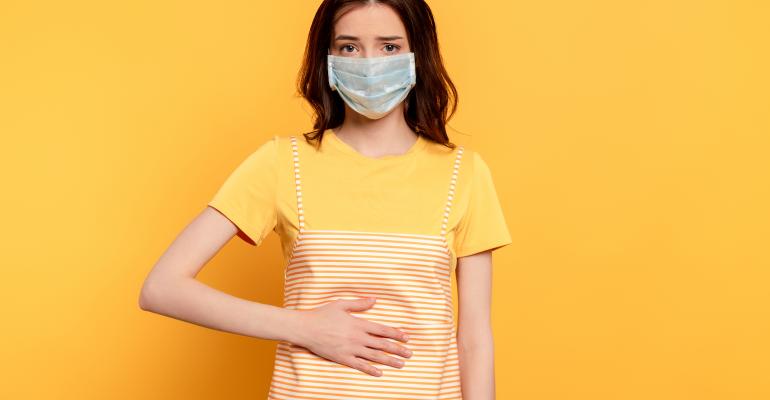Severe cases of COVID-19 often include gastrointestinal (GI) symptoms, complicating prognoses for gastroenterologists. As a result, according to Dr Prithvi Priyadarshini, Specialist Gastroenterologist and Head of the Gastroenterology Department at Al Zahra Hospital, Sharjah, the pandemic has added a new layer to her work.
“When we talk about colitis of any cause, patients present with diarrhea, abdominal pain and potential rectal bleeding. The first we’d ask is if this could be cancer,” Dr Priyadarshini said.
COVID-19 has complicated matters, however. “There are two main issues here. Firstly, COVID-19 has affected patients who have already been diagnosed with IBD and are on treatment. Secondly, it is also an issue for patients who are recently developing IBD symptoms and are hesitating to come to hospital due to the pandemic,” she explained.
For the first group of patients, their gastroenterologist would have supplied them with a few months’ worth of medication to cut out the need for frequent hospital visits. Even so, some patients may develop acute symptoms like diarrhea or bleeding all of a sudden, even on the same medication. This is where step-up therapy has been crucial, where treatment is individualised and constantly tweaked. “The issue is that patients are hesitating to come to hospital. They don't visit as frequently, and they tend to do self-medication even though IBD patients are well aware that this could be dangerous.”
Telemedicine has made it easier to manage long term patients, Dr Priyadarshini said. “Newly diagnosed patients and the patients who are developing symptoms now are the ones who are lagging behind in proper treatment.”
A mainstay in IBD diagnosis are endoscopy or colonoscopy procedures. Over the last 18 months, Dr Priyadarshini has observed a lot of hesitation from newly diagnosed patients in undergoing these procedures. “This delays the diagnosis and we need to convince the patient saying that these could be the complications, and these are the reasons why you need a colonoscopy.”
When it comes to COVID-19 infected IBD patients, Dr Priyadarshini says it’s a completely different story. A lot of times, gastroenterologists work with physicians and intensivists to treat these patients, because both IBD and COVID-19 are treated separately. “If an IBD patient gets COVID-19 it could be mild, moderate or severe. They can come out of it depending on the severity of COVID-19, not the severity of IBD.”
Ultimately, gut health needs care and attention, starting with good nutrition, stress management and probiotics, which Dr Priyadarshini sees as “wonderful when taken in a proper sequence and in a proper way”.
A lot of her patients have expressed worries over taking the COVID-19 vaccination and whether it will exacerbate IBD. Dr Priyadarshini stresses that there is no link and encourages everyone to get vaccinated. “From January this year, it’s very clear to all of us that the vaccine is safe for IBD patients. Please go ahead and take the vaccine. It's safe.”

